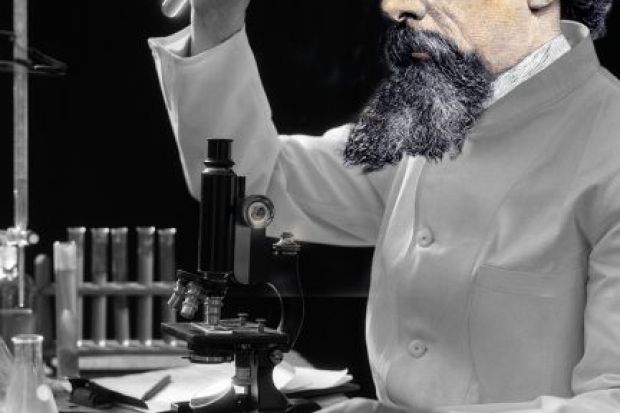The intricately responsive relationship between the realist novel and evolutionary theory has been firmly established since Gillian Beer’s influential Darwin’s Plots: Evolutionary Narrative in Darwin, George Eliot and Nineteenth-Century Fiction appeared in 1983. Ian Duncan’s book adds a new dimension and range to this rich field. Taking as his opening proposition that evolution did not so much lay the foundations for 19th-century literature as “provoke a rolling earthquake of speculation and controversy”, he examines how the Bildungsroman and the historical novel, as well as the works of Charles Dickens and George Eliot, respond to the challenges of their evolving times.
Duncan’s historical landscape is a relatively well-known one, opening with the French Revolution, “a shocking acceleration of historical change” that threatened, or promised, to change human nature, and that is one part of the familiar revolution/evolution dyad that has shaped 19th-century literature modules for years. But he is less interested in this model than in the possibility that natural history, the novel and human nature make up an indissolubly compact and minutely reactive compound. The novel’s particular fascination for Duncan is that it can map individual stories alongside collective narratives, whether of species or of nation, and can thereby bring the impact of broader systems to bear on individual lives, thoughts and feelings.
Read through this prism of combined forces, the novel becomes a measure of the integration of new scientific awareness into its readers’ and authors’ lives, leading to fresh readings of familiar texts that reinstate the energy of their original engagement with science. This is seen most obviously in the case of Eliot: Duncan seeks “to restore the strangeness of scientific language in George Eliot’s fiction”, to retrieve it from the familiarity which scientific language has now attained. Her work, concerned so often with the tension between the imperatives of the collective, organic community and the individual existing within it, is the perfect vehicle for his approach.
More anomalous within Human Forms is its chapter on Dickens, which concentrates on Bleak House and struggles to keep within the bounds of the book’s central argument, just as the novel’s “Megalosaurus, forty feet long or so, waddling like an elephantine lizard up Holborn-hill” exceeds the bounds of realism. This is, of course, as Duncan eloquently shows, the point of the dinosaur, which helps to bring realism and Romanticism “into collision” within Dickens’ work. It is a superbly rich chapter, which reads the novel as an anthropocene text, as “Steam-punk, so to speak, avant la lettre”, and as indebted both to Herman Melville and William Wordsworth.
Duncan’s book ends with an analysis of Eliot’s late essay, “Shadows of the Coming Race”, showing how it both counters “Darwin’s rhapsodic vision of the plenitude of terrestrial life” at the end of On the Origin of Species (“from so simple a beginning endless forms most beautiful and most wonderful have been, and are being evolved”), and anticipates the ultimate consequence of evolution in a universe where machines have taken over. His thorough re-examination of her work reinvests its scientific rigour with contemporary force – which itself promises, like Darwin’s forms, to go on evolving.
Gail Marshall is professor of Victorian literature and culture, and head of the School of Literature and Languages, at the University of Reading.
Human Forms: The Novel in the Age of Evolution
By Ian Duncan
Princeton University Press, 312pp, £30.00
ISBN 9780691175072
Published 3 September 2019
POSTSCRIPT:
Print headline: Where science meets stories
Register to continue
Why register?
- Registration is free and only takes a moment
- Once registered, you can read 3 articles a month
- Sign up for our newsletter
Subscribe
Or subscribe for unlimited access to:
- Unlimited access to news, views, insights & reviews
- Digital editions
- Digital access to THE’s university and college rankings analysis
Already registered or a current subscriber? Login








